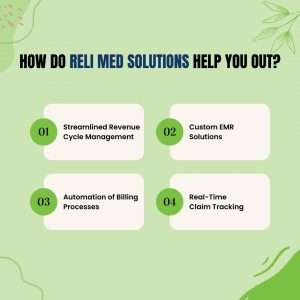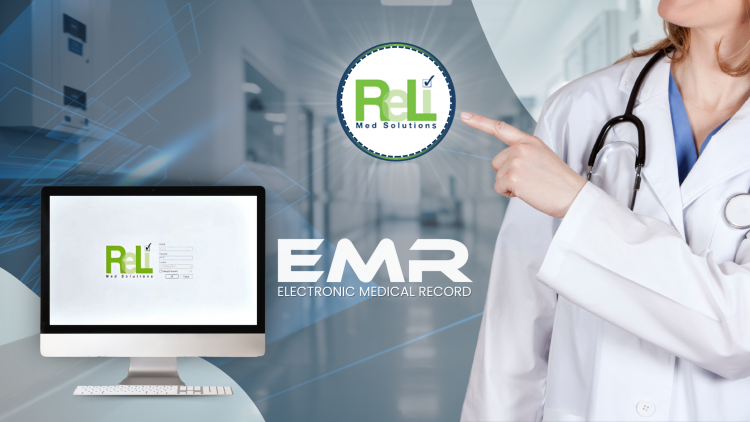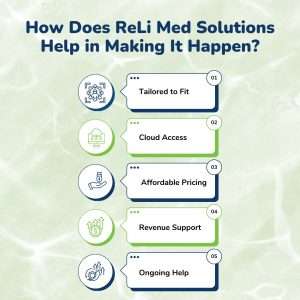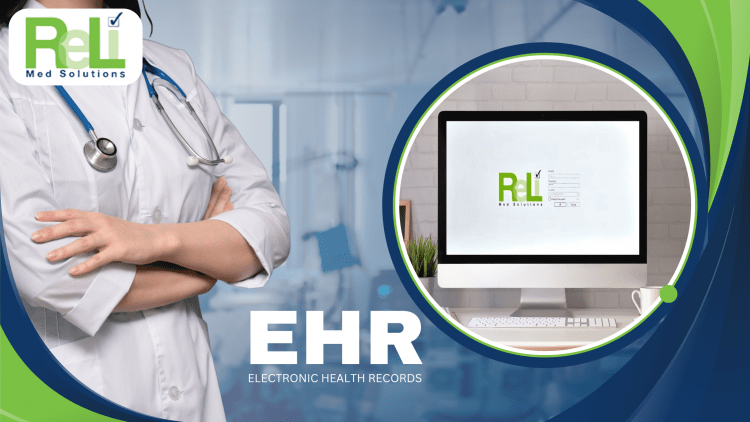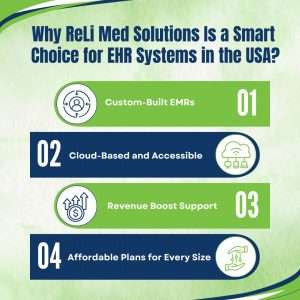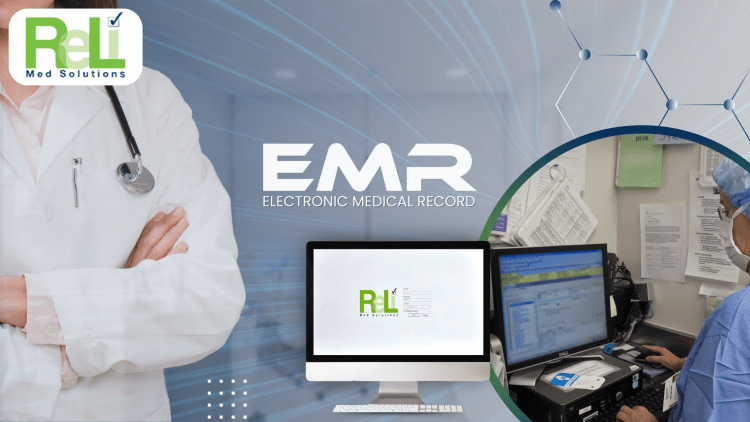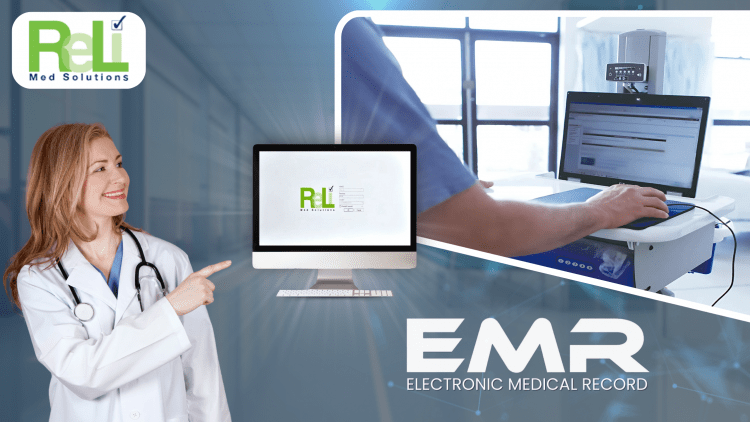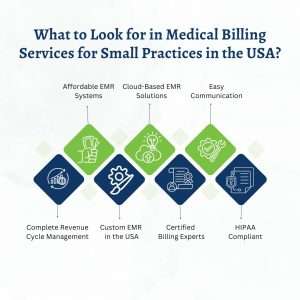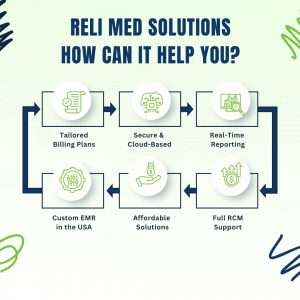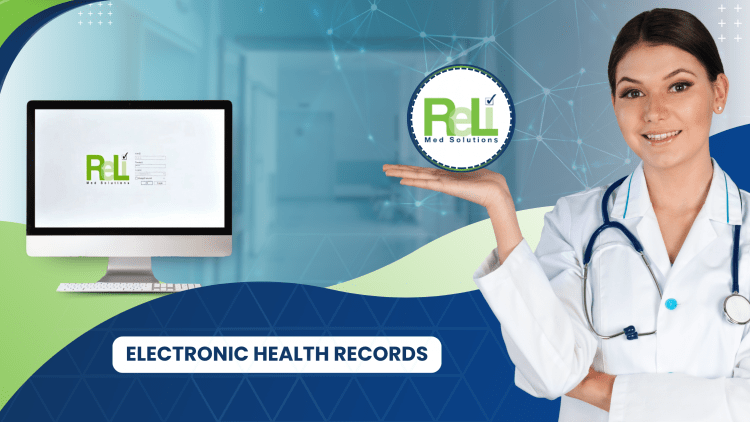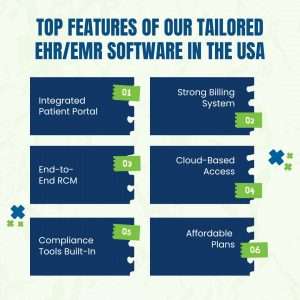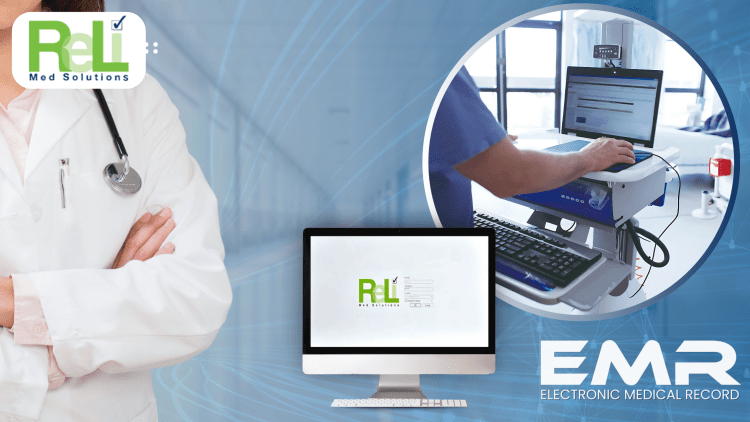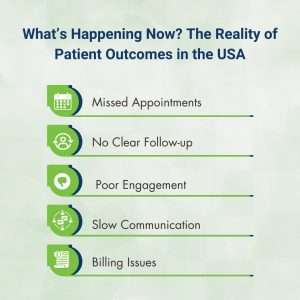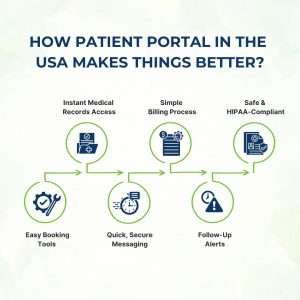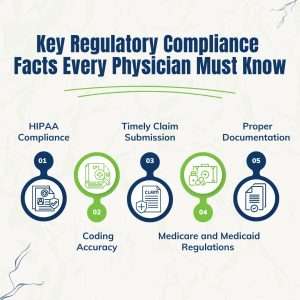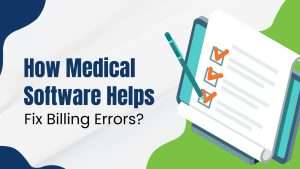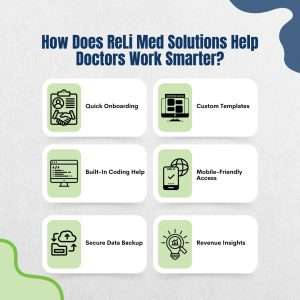Certified EMR in the USA: The Secret to Streamlining Your Practice
In today’s healthcare world, doctors face many challenges. For instance, managing patient information, staying within the law, and handling paperwork can be hard. Still, a certified EMR in the USA can help. Specifically, it makes keeping patient records easy, ensures you follow the law, and helps you focus more on treating patients. Therefore, if you’re still using paper or old systems, it’s time to switch to a certified EMR.
Key Features of certified EMR Systems
When choosing an EMR system, it’s important to pick the right one. A certified EMR system makes your practice run smoothly. Here are some key features of certified EMR systems:
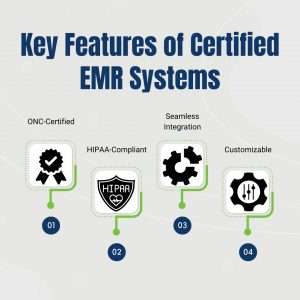
- ONC-Certified: A certified EMR in the USA is approved by the Office of the ONC. This means the system meets high standards. Because of that, it can share patient data with other healthcare providers safely.
- HIPAA-Compliant: Certified EMR systems follow HIPAA rules. HIPAA is the Health Insurance Portability and Accountability Act. This means your patient data is safe and your practice avoids legal problems.
- Seamless Integration: Certified EMR systems, for instance, connect well with other software in your practice, such as billing and scheduling tools. Consequently, this makes everything work better, reducing mistakes and, in turn, making patient data easy to access.
- Customizable: Every practice is different. A custom EMR in the USA lets you change the system to match your needs. Whether you’re a family doctor, cardiologist, or another specialist, you can adjust the system to help you do your work better.
How a certified EMR in the USA Streamlines Your Practice?
A certified EMR system does much more than keep patient records; in fact, it helps your whole practice run better. Furthermore, here’s how:

- Better organization: A cloud-based EMR solutions stores all patient data in one place. This means you can find what you need quickly and easily. No more searching through paper files. Everything is organized and ready when you need it.
- Improved productivity: By automating tasks like scheduling and billing, you can spend more time with your patients. With fewer administrative tasks, you can focus on what you do best: taking care of patients.
- Better patient care: A certified EMR gives you fast access to patient information. You can see their medical history, lab results, and treatment plans quickly. This helps you make better decisions and provide better care.
- Revenue cycle management: A certified EMR helps with billing. It makes sure your bills are correct and sent on time. This keeps the money flowing into your practice and helps you stay financially stable.
- Affordable EMR systems: Some doctors worry about the cost of EMR systems. However, many affordable EMR systems are now available. These systems give you all the features you need without a high cost. That way, even smaller practices can use them.
Expert Opinion
At ReLi Med Solutions, we understand how busy doctors are. That’s why we’ve created certified EMR systems that are easy to use and fit the needs of your practice. Our systems are cloud-based, affordable, and customizable, helping you save time and focus on your patients. We have worked hard to develop systems that meet all the standards for security and compliance. No matter how big or small your practice is, ReLi Med Solutions has an EMR system that will work for you. Also, by choosing us, you get a partner who not only understands your needs but also will help you improve your practice’s workflow.
Conclusion
Switching to a certified EMR in the USA system is, without a doubt, one of the best choices you can make for your practice. Not only does it help you organize patient records, but it also improves patient care and, ultimately, increases your practice’s efficiency. Also, with ReLi Med Solutions, you get an affordable, cloud-based EMR system that can be easily customized to meet your needs. If you’re ready to streamline your practice and improve your patient care, contact ReLi Med Solutions today. We offer the tools you need to run a successful practice. Contact us now and see how a certified EMR can make your practice better!




